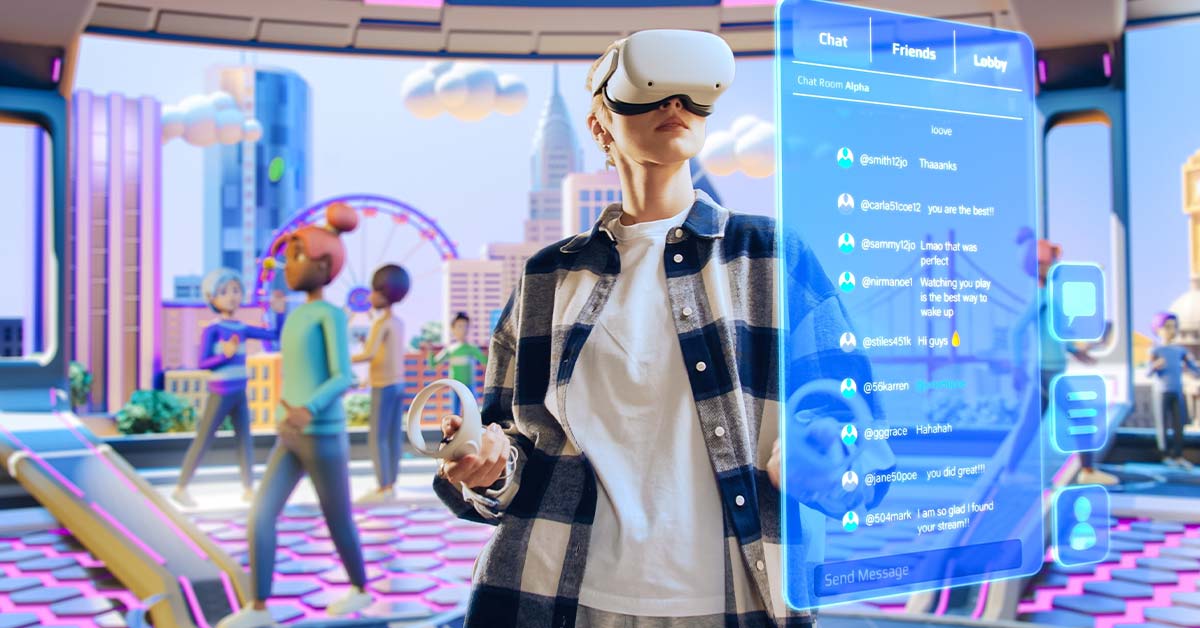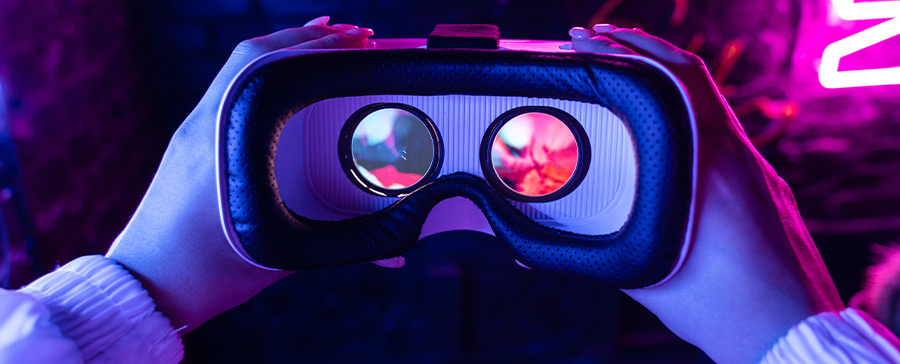
Rapid advances in the telecom industry have revolutionised the entertainment industry. Customers have a wealth of entertainment to explore on-demand, and content can be delivered seamlessly at near instantaneous speeds. Telecom’s rapid pace of innovation has ushered in a world of new possibilities for consumers, and for the media industry that seeks to keep them entertained.
With lightning-fast downloads and bandwidth of 5G becoming the new norm, expect to see the introduction of even more entertainment innovation. Just as streaming changed the very nature of entertainment, with 5G roll outs we will soon see amazing enhancements like AR (Augmented Reality) and VR (Virtual Reality) come into our world. Expect stunning advancements in personalised recommendations, with the introduction of AI (Artificial Intelligence). Telecom companies are innovating at an incredibly rapid pace, and the entertainment industry is coming along, hand-in-hand, for the wild ride.
The Evolution of Telecom Companies in the Entertainment Landscape
In the past, telecom companies traditionally offered cable system programming with many channels, but this came with little opportunity for customisation or watching on-demand. With the introduction of DVRs, consumers could build their own library of content and watch when they wanted. As broadband and cellular data speeds began to increase exponentially, high speed streaming became an option and opened the doorway to countless possibilities.
Now, with the superior speed and low latency of 5G networks, content streaming is seamless and content downloads for off-line watching happen in a flash. With a blazing fast pipeline available, a host of new entertainment providers, including Hulu, Netflix, Apple and more, created a wealth of highly regarded content offerings. With the pace of telecom innovation showing no signs of slowing, the forecast for our entertainment future is even more astounding than ever before.
Virtual Reality (VR) and Augmented Reality (AR) in Entertainment

The future of entertainment will be re-shaped by AR and VR. Augmented reality uses a real-world environment as its basis, then adds new visual elements to that physical world. A new reality is thus created, as real life and virtual elements are blended to create a unique, new scene. With virtual reality, the user is immersed in a full virtual environment that is created within the system. Typically, VR systems require use of specialised headgear.
Rapid advances in both AR and VR technology have led to some fascinating examples of cutting-edge entertainment. With AR, real-time sporting events can be streamed, and enhanced with instant statistics overlaid to the viewing device. VR allows athletic contests to be presented in 360-degree formats, thus creating a truly immersive experience. Live concerts can become virtual music shows with the application of AR and VR. Films and television can also be transformed into new entertainment vehicles with the addition of AR overlays and VR immersion.
Role of 5G in Shaping the Future of Entertainment
5G, the latest generation cellular network, is revolutionary in that it offers higher multi-GB per second speeds, very low latency (delay) and increased network capacity. With blazing fast speeds and increased bandwidth, 5G opens the doorway to new and exciting innovation in the entertainment industry.
Streaming ultra-high-definition movies and video on demand is seamless over 5G networks. The magic of Hollywood can be yours in an instant, as movies can also be downloaded in seconds over 5G. Gaming benefits greatly, with dramatically enhanced speeds and reduced latency. Given that, it’s no wonder that 5G mobile gaming revenue is predicted to reach €93B by the year 2028. Live sporting events, along with real-time statistics, can also be broadcast instantly with 5G.
AI and Machine Learning: Personalising Entertainment
Artificial Intelligence (AI) is the field of creating computer techniques that can mimic, and even go beyond, our human capabilities. Machine learning is a subset of AI that leverages data to solve specific tasks. Basically, these solvers use data we provide to learn and then automatically solve their given predictive tasks.
AI and machine learning can greatly improve our entertainment experience. We’ve all experienced the joy of finding a great show, and then being delighted as we binge watch it. The plot lines, character development and twists and turns keep us entertained for days. In a world with AI and machine learning, the system will be able to understand the nuances of our viewing habits and instantly provide sophisticated recommendations for new series and movies that will keep us happily entertained.
Blockchain Technology and Telecom: Reinventing Content Distribution
Blockchain functions as an immutable, shared ledger that can facilitate the recording of transactions and asset tracking across a business network. As assets can be either tangible or intangible, you can use blockchain to trade or track almost anything on the network. This reduces the cost and risk for all involved.
With blockchain’s distributed ledger technology, telecom and entertainment providers can replicate data across all of the stakeholders and have visibility to the full transaction history between all parties. Blockchain thus delivers transparency and security. This technology allows for full management of digital right for entertainment and content providers in the system. Other innovative telecom blockchain initiatives include Qlink, for telecom billing, and BubbleTone, which aims to eliminate roaming fees altogether.
Telecom Companies and eSports Boom

The global market for eSports was €1.35 billion in 2022, and is forecast to reach €6.3 billion by the year 2030. Live streaming of games and rising viewer counts, ticket sales and engagement plus investments in gaming have all helped propel eSports to global phenomenon status. At least one university plans to offer an eSports degree program.
Over-the-top media like Netflix and Amazon Prime operate on top of the telecom infrastructure and bring in substantial revenue. With eSports, telecom companies can tap directly into the young, affluent market of eSports fans and capture the attention and interest of a very profitable niche segment. One of the leading telecom companies in the United States started sponsoring eSports teams in 2017. This has since expanded to partnership with an eSports league. Other telecom companies are sponsoring eSports League of Legends Championship series and another is putting its logo on an eSports League arena.
Preview of the Future: What’s Next for Telecom in Entertainment?
With the entertainment industry leveraging incredible technical advancements by telecom companies, the sky is the limit when it comes to future entertainment and content offerings. Just as streaming video disrupted the cable industry, so has social media disrupted streaming video. Expect to see more innovative disruption as bandwidth and speeds multiply dramatically.
Creators and influencers currently provide some 70% of social media content, but are often poorly compensated. Expect to see the dawn of the independent creator in the coming years as they go direct-to-consumer. The ever-changing entertainment landscape will also be highly influenced by the desires of Generation Z, those born between 1997 and the year 2012. These digital savvy consumers will drive new forms of entertainment, both from a production and consumption standpoint. Also, look for unparalleled immersive storytelling to take hold as AR and VR come to the forefront as experiences easily delivered over robust 5G networks.






